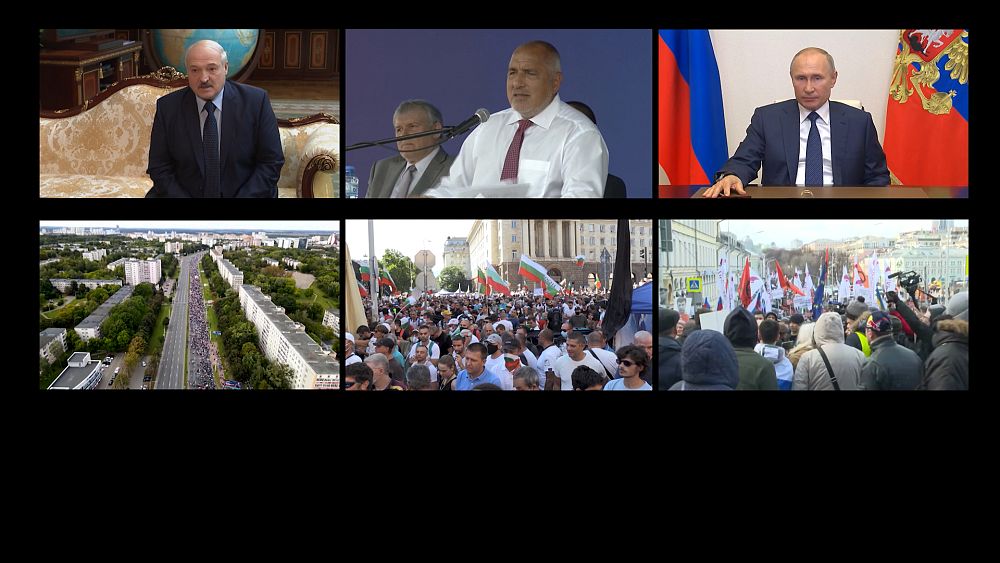In the East of Europe, an ever-stronger wind of protest is blowing.
Belarus, Bulgaria and Russia have different histories and peoples but common denominators: a Soviet past, authorities that seem to see themselves as irreplaceable and populations revolting against the status quo.
Lukashenko, Borisov and Putin have been in power for years. In the background the European Union seeks to play its part in an ever-changing game of geopolitical chess.
Women lead the opposition in Belarus
In Minsk on August the 16th an estimated 200, 000 demonstrators turned out to claim that the re-election of President Alexander Lukashenko was a fraud.
But the man who has led Belarus for 26 years denied the claim and refused to budge.
The mass protests became a weekly occurrence, so did the police crackdown. Thousands were arrested and two died from the injuries they sustained.
Under pressure from Moscow, Lukashenko now says he will step down once a new constitution for the country is adopted, but the opposition’s sceptical about the promise.
A team of women behind presidential candidate Svetlana Tikhanovskaya has led the opposition movement and the European Parliament rewarded it with the Sakharov Prize. The EU has promised economic support for any democratic transition that respects human rights.
The EPP’s awkward ally
For more than three months, Bulgarians have been taking to the streets demanding the resignation of the prime minister Boyko Borisov, the conservative who’s been in power on and off since 2009 and faces claims of corruption and links to an oligarchic mafia.
He rejected a request for the resignation of his government from President Rumen Radev.
Borisov is a member of the European People’s Party, and critics accuse Brussels of putting insufficient pressure on the EU’s poorest country to improve governance.
Putin consolidates power
Russian President Vladimir Putin also faced popular protests in July, over constitutional reforms that enable him to stand for election again in 2024, when his fourth term of office comes to an end and potentially stay in power until 2036.
The referendum over the changes was won with 78% of the votes. For good measure the Duma also backed a bill granting Russian presidents and their families immunity from criminal prosecution after they leave office.
Top Kremlin critic Alexei Navalny described the referendum results as a “big lie” which did not reflect real public opinion in the country. The following month he suffered an apparent poisoning attack.
Treatment in a Berlin hospital helped save his life. Navalny blames Putin for the poisoning, a claim denied by Moscow.
The case has exacerbated tensions between Europe and Russia. Navalny is calling on Brussels to hit Moscow with targeted measures specifically aimed at oligarchs. He also raised concerns over the fairness of upcoming general elections.








